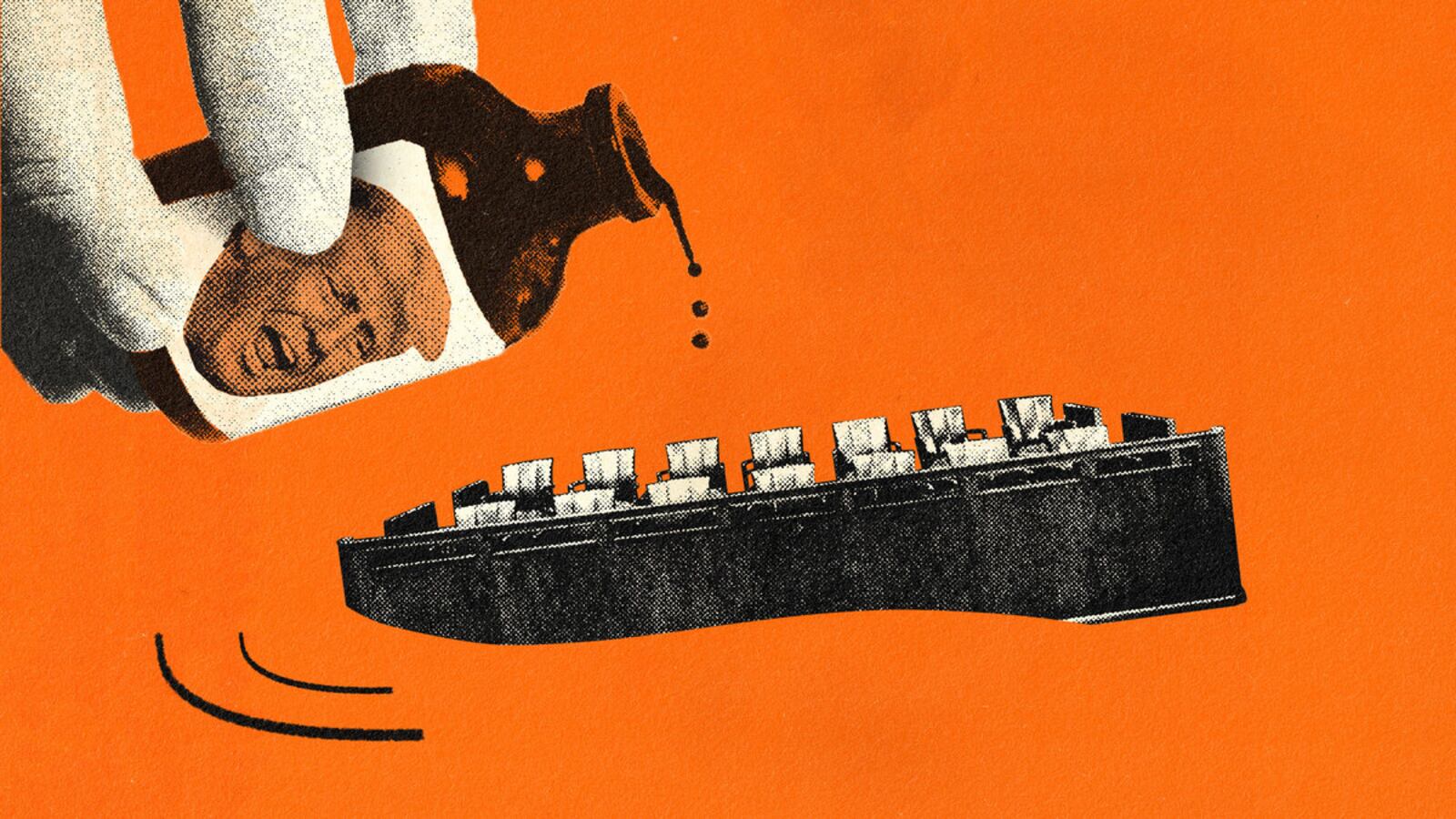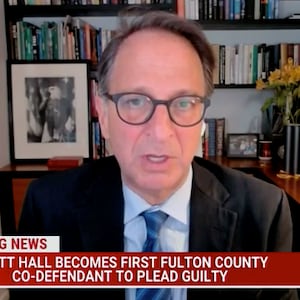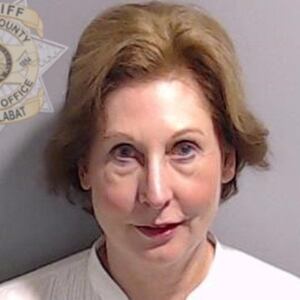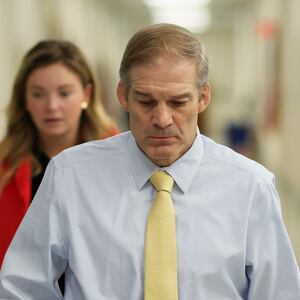Sidney Powell and Kenneth Chesebro, the two indicted Donald Trump coup lawyers who volunteered to face trial first in Atlanta, are adopting the former president’s courtroom playbook and doing whatever they can to pollute the jury that’ll decide their fate.
And if they succeed, they may set new legal precedent that could be applied to Trump’s case and the trials of other co-conspirators in Georgia.
Friday marks the start of what promises to be an arduous and protracted jury selection, one that could take weeks because prosecutors and defense lawyers are trying to settle a fundamental question: How do you agree on a dozen fair-minded jurors when the Fulton County District Attorney claims that every Georgian was victimized by a plot to deny their vote?
A pretrial hearing on Monday showed just how difficult it’ll be—and how defense lawyers drafting a questionnaire for all potential jurors are already explicitly asking the judge to break the rules.
In a case already denounced by Trump loyalists as nothing more than partisan politics, Powell and Chesebro’s lawyers want to conduct what the judge deemed a highly irregular “Gallup poll” to gauge how jurors “feel” about everyone who took part in the attempt to flip the 2020 election results.
Stranger still, the defense team wants to ask—point blank—reactions to statements that elicit deeply sectarian biases, such as: MAGA Republicans are radicals and white supremacists, and Trump tried to steal the election and take away my vote.
“These are attitudinal type questions... we would be able to use to test if they can in fact be fair and impartial,” Brian T. Rafferty, Powell’s lawyer, said in court Monday.
Scott R. Grubman, Chesebro’s attorney, jumped in as special prosecutor Nathan Wade shook his head.
“Literally that is why we’re here,” Grubman said.
Fulton Superior Court Judge Scott McAfee reminded everyone that there are long-standing rules that prohibit—for obvious reasons—essentially asking a juror how they’ll judge a case before they even hear any of the evidence.
“We always had a hard line in the sand... we don’t tell jurors to tell us how you’ll vote,” the judge countered. “Part of the role a questionnaire does is... to hone in on what matters… that doesn’t throw out the general standards you’re allowed to ask jurors, period.”
“We’re not supposed to be asking jurors to give their opinions up front,” the judge repeated.
McAfee seemed particularly uncomfortable with the way the defense lawyers want to list potential witnesses and all 19 defendants in the case—everyone ranging from the former president to a relatively unknown U.S. Marine who’s involved with “Black Voices for Trump”—and ask prospective jurors how they feel about these people. The options apparently ranged from “very unfavorable” to “very favorable,” prompting the judge to deride it as a “Gallup poll.”
The mere request shows how defense lawyers are already laying the groundwork to potentially smear the trial from the very start as unfair and nothing more than political theater.
The public’s impression of the judicial system’s ability to handle this prosecution is particularly sensitive for the first phase of the trial, given that it involves such divisive figures as Trump and the top people who guided his attempt to stay in power by force.
The list of potential witnesses includes figures like Georgia Gov. Brian Kemp, conspiracy theorist Alex Jones, and right-wing media personality Steve Bannon. Powell’s attorney argued they need to know jurors’ opinions about everyone involved in the case, because this will become a first pass at the Trump trial anyway.
“The government has indicated its intention to prove its entire case over six months. It has nothing to do with Sidney Powell. If the government's intention is to offer a bunch of information on Donald Trump, Rudy Giuliani, John Eastman... ask the jurors about their views,” Rafferty said.
The judge seemed unmoved by that argument, plucking the hamfisted poll from the questionnaire—but said he’d allow the defense lawyers to ask these questions anyway during spoken conversations with prospective jurors.
The stakes are uniquely high for Powell and Chesebro. The two are among 19 who were accused of taking part in a vast conspiracy to keep Trump in the White House after he lost his re-election campaign. Powell, made infamous for directing what she called a multi-tentacled “Kraken” supermonster of election-overturning lawsuits, was criminally charged with making false statements and trying to commit election fraud by breaking into election computers in rural Georgia. Chesebro, who wrote legal memos laying out how Republican fake electors could run parallel electoral college votes in case some states managed to forcefully flip the election results, was charged with trying to impersonate an official officer and creating forgeries.
But while District Attorney Fani Willis wanted to take everyone to trial at once—and soon—Powell and Chesebro decided to speed up their legal fight, giving their associates a preview of what’s to come.
That context helps explain why their defense lawyers are so keen to disrupt the courtroom status quo, and how everyone accused of taking part in this mob-like criminal enterprise can jointly benefit from the chaos now.
Monday displayed the tell-tale signs that the MAGA crew’s defense lawyers are fully adopting the same rule-bucking strategies that Trump himself has been employing in his ongoing legal battles across the country. Defense lawyers asked the judge to do away with tradition and established legal principles, because, as always with anything related to Trump, the rules simply shouldn’t apply.
"I think it would be a mistake for any of us to treat this like a normal case... I think the realities are really going to have to start sinking in here. This is not an ordinary case. It’s not because of anything we did. It’s because of how they charged it,” Grubman argued, blaming the DA for even bringing the case.
He described the trial as “a case that has no parallels in the history of Georgia or American jurisprudence.”
However, Assistant District Attorney Alex Bernick pushed back on the idea that now is the right time to pull over the straight and narrow path.
“He wants you to disregard the case law just because it’s a high-profile case. We have to follow the law here,” Bernick said.
The judge told everyone he’d “take it under advisement.”







